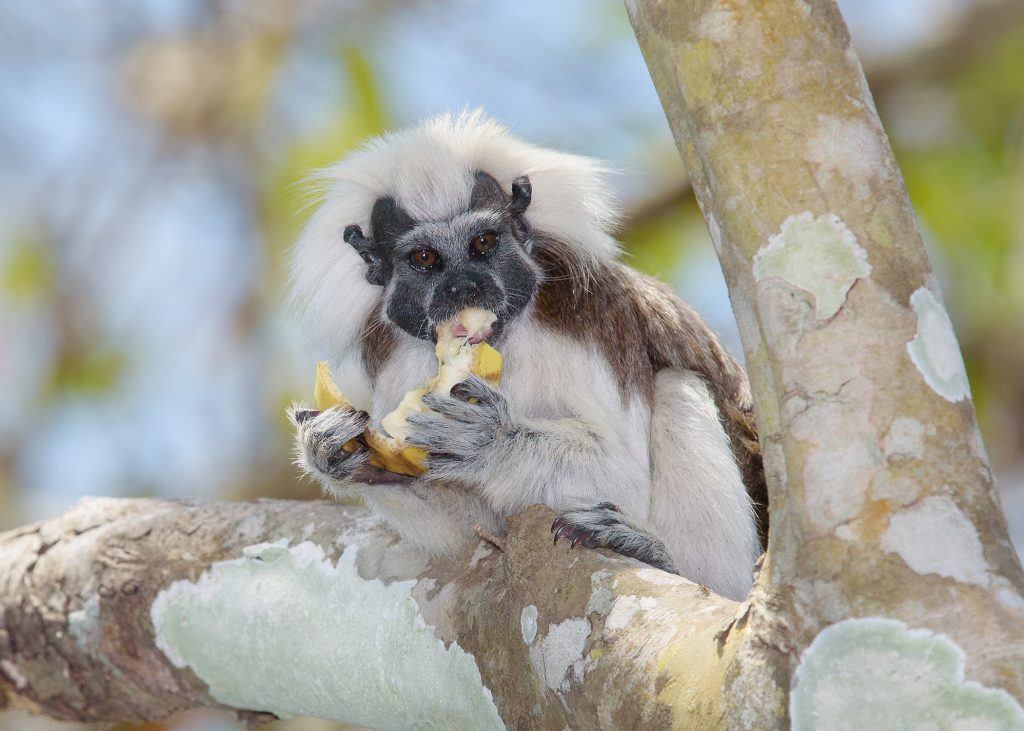Rosamira Guillen understands that in order to make sense of animal behavior, you need to learn their language. This is certainly true of the cotton-top tamarin, a critically endangered species of monkey found only in northwestern Colombia. Rosamira and Proyecto Tití have worked tirelessly to study cotton-top behavior in their effort to protect and teach others about this special primate.
Cotton-top tamarins have over 30 different vocalizations used for complex communication. They include alarm calls, notifying the group about food, and a variety of other social cues. One of these distinct vocalizations is used when cotton-tops are distressed or feel threatened. This rapid cry could easily be mistaken as the excited tweets of a bird, but is actually indicative of a nervous tamarin alerting its group.
Alarm calls like these reflect cotton-top reactions to unfamiliar sights in their forest. Unlike groups more accustomed to Rosamira’s team, this group of cotton-tops in the video are wild and not yet used to seeing Proyecto Tití’s field assistants, so they are understandably alarmed by their presence. Under normal circumstances, they would use this call when encountering predators, rival cotton-top groups, or poachers.
Every cotton-top family has a designated member in charge of surveillance, to warn the others of any signs of danger. The rest of the group responds right away when they hear a warning cry. Cotton-tops are quite territorial, living in tight-knit family groups with clearly defined domains. But these monkeys are so small that it can be difficult to locate them in their dense forest homes. So members of Proyecto Tití have to get creative to bring the tamarins to them.

They record the many vocalizations made by cotton-tops in managed care, to ensure that the wild cotton-tops have never heard these calls in their territories before. Proyecto Tití staff then analyze what each cry means and play the appropriate ones on speakers to draw in wild cotton-tops. When they hear unfamiliar calls, the wild cotton-tops believe rivals have invaded their space and come to investigate. This is useful when Rosamira’s team is performing a population census or returning rescued cotton-tops to their families. The latter is a rare event, and when this happens, Proyecto Tití will involve local environmental authorities and offer them guidance.
Understanding the unique language of cotton-top tamarins is vital to their conservation, and allows organizations like Proyecto Tití to study this elusive species without endlessly wandering through the Colombian forest in search of the monkeys. Knowing the language brings the cotton-tops right to them.

